The no-dig garden system was developed by Sydney gardener, Esther Dean during the 1970's. It basically works in the same way as composting. You build up layers, then plant your little babies in a little compost in the top. Here is what Kerrie had to say about no-dig gardening:
S: What are the important things to remember when making a no-dig garden?
K: Correct
choice of site; veggies need about 6
hours of sunlight
Good
planning and design; will it be a raised garden bed, a mandala, a keyhole
shape? Are pathways needed? How will the
plants be placed within the space?
Access to
water
Proximity
to the house (in our Zone 1 as we say in permaculture)
Adequate
resources; newspaper, manures, straw, hay, multiple elements for the layering
of the “lasagne”. Essentially a no dig
garden is a version of a compost heap; carbonous and nitrogenous materials are
required
Start with
sheet mulching of newspaper, must be nice and thick!
Water each
layer as you go
Finish
with a layer of mulch, and use at least a handful of compost or soil with each
plant placed in the garden
And
remember, it will “sink down”, same as a compost heap, so ensure the plants
aren't left high and dry when this occurs
Enjoy,
delicious, organic produce from your own garden! Nothing will ever taste so good, or be as
satisfying.
You can build your own no-dig garden, too! They work well directly onto your lawn (even if the soil is very poor), I will be building two of them onto pavers! If you are popping your no-dig layers into a garden bed, you will need a good 40cm in height.
Wet down some newspapers. You will need a few, and open them up before you wet them.
Lay down a thick, well-overlapped layer of wet newspaper. Don't use the glossy pages.
Start the lasagne layers! Cow manure (nitrogenous).
Deadybones leaves and grass clippings (carbonous).
Organic fertilizer pellets (nitrogenous). Don't forget to water each layer well!
Straw (carbonous).
Some green comfrey leaves, or any other garden trimmings (nitrogenous).
Straw again (carbonous)
More cow manure, with a sprinkling of dolomite lime (nitrogenous)
Final mulch layer of lucerne hay. More pricey than other mulching materials, but adds more nutrients to the soil as it breaks down.
Make a little burrow in the top layers and tip in some compost. Plant your little baby seedlings and water them well. Don't forget to talk to them every day.
Have you tried a no-dig garden yet?



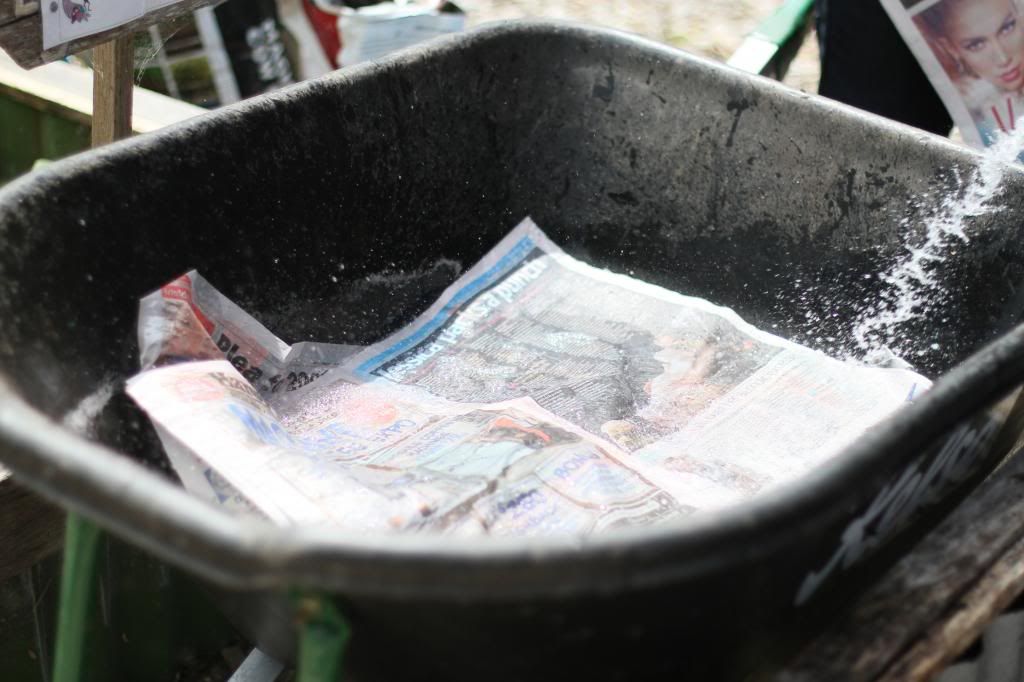
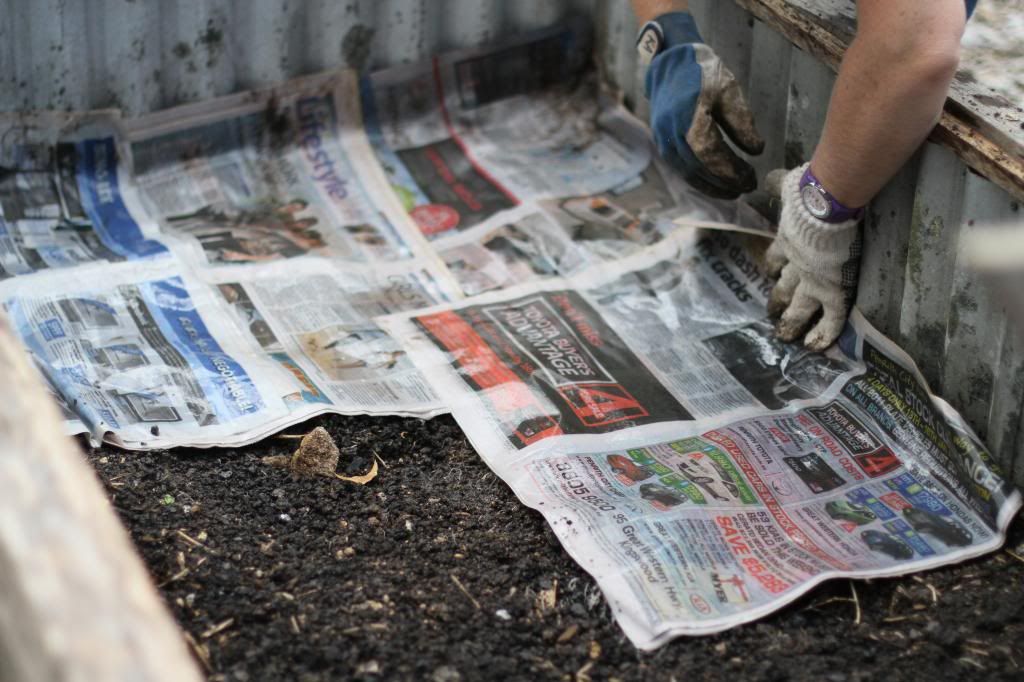

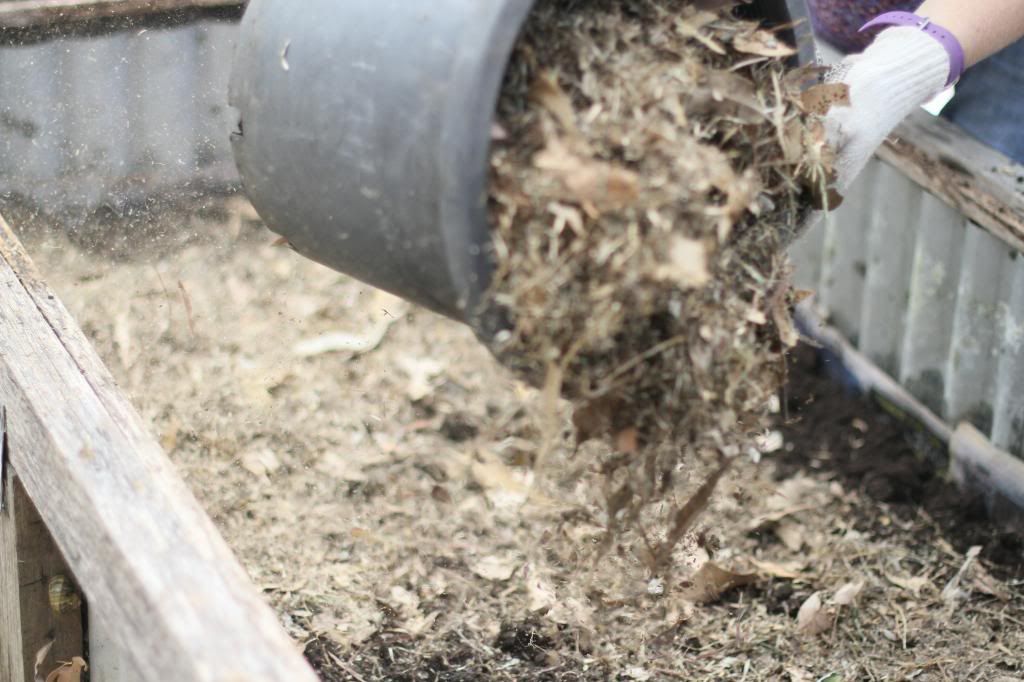
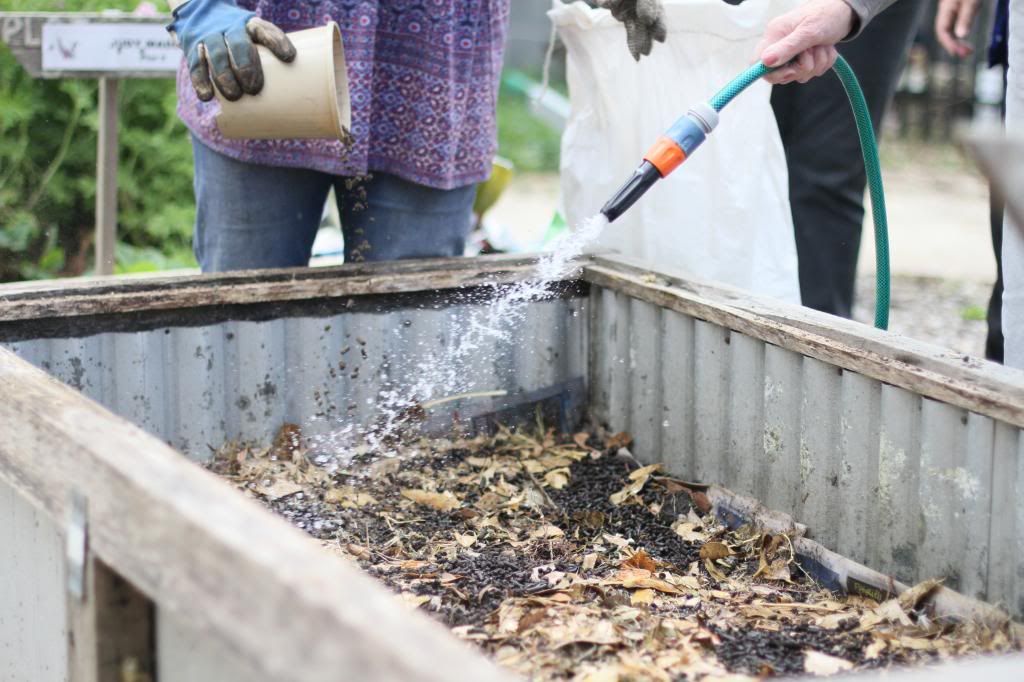


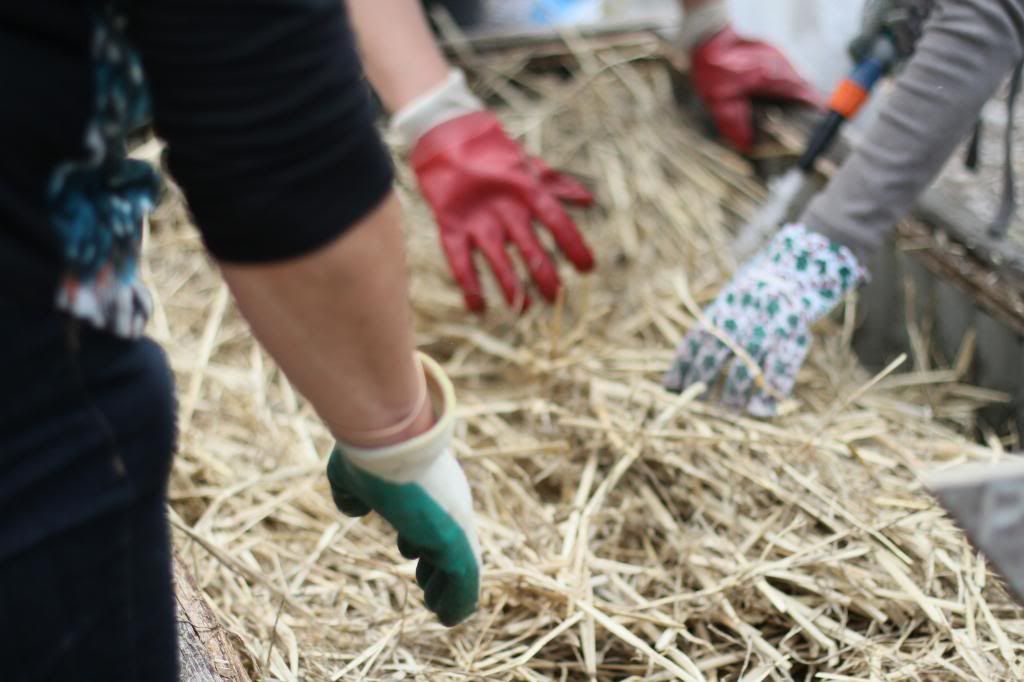

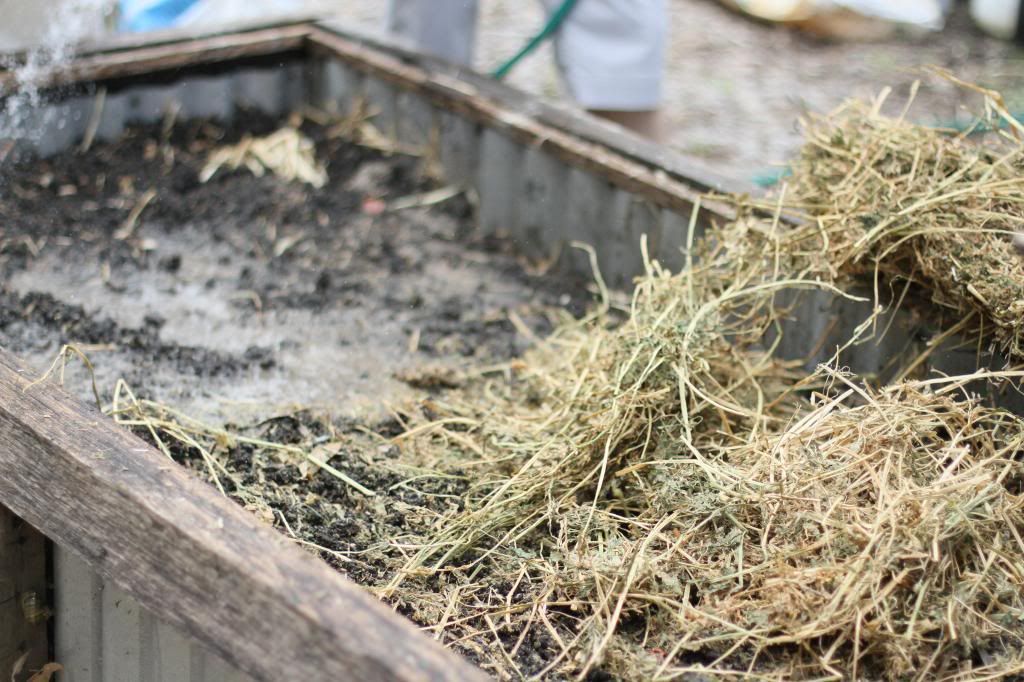

We've had great success with our no dig garden which we built about 2 years ago. It currently has carrots, beets and cucumbers in it - all going great guns! We've built 2 more since then too.
ReplyDeleteIt's great to hear long-term success with a no-dig garden! Can't wait to put our two together on the weekend.
DeleteThis is the first I've heard of a no dig garden but love the sound of it.
ReplyDeleteit's pretty cool trishie :)
DeleteGreat instructions.
ReplyDeleteOur no dig garden is going very well. One thing I really like about it is the minimal weeds, if any that grow.
x
another great benefit- thanks Zara!
DeleteThanks for those instructions!
ReplyDeleteI really want to get a veggie garden going...we have a few herbs out the front and some fruit trees down the back...and I would love to add vegetables.
Hopefully 2013 will be the year of the veggies for me!
go for it! can't wait to see how your planting goes :)
DeleteWhat a fantastic post! I will be earmarking this one and popping back in a few days when we re-do our vegie garden. Thanks so much for sharing lovely! Hope your week is a grand one.
ReplyDeleteSteph :) x
thanks steph, have fun with your garden :)
Deletewe love to grow and play in the garden. enjoy and all the best with it!
ReplyDeletethank you sarah :)
DeleteOh just seen your comfrey, I haven't got quite enough to be adding them to my beds as whole leaves, but won't be long. Great post Sarah. The no-dig garden concept and permaculture as a whole has been truly life-changing for me and us as a family. Hope it gives you lots of joy. x
ReplyDelete